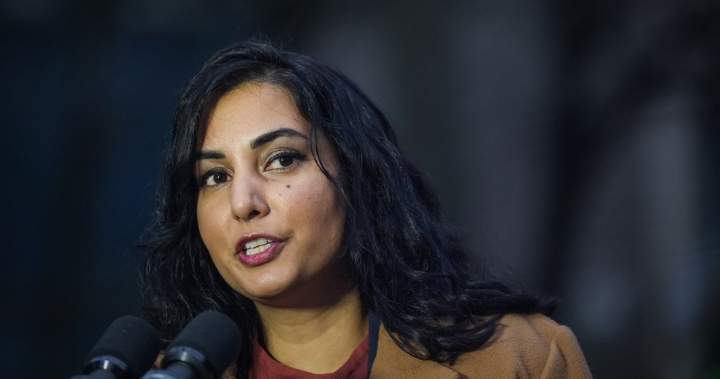The British Columbia government is strengthening legislation that protects people whose intimate images have been shared without their consent, a crime Attorney General Niki Sharma described as a form of sexualized violence.
Sharma told a news conference as the fall legislative session got underway in Victoria on Monday that she would table a bill to amend the province’s Intimate Images Protection Act, which came into force in January 2024.
“Sharing someone else’s intimate images without consent is a crime. Whether it is done with the goal of extorting money, blackmailing someone, or as a tool for emotional abuse, it is wrong,” she said.
The bill allows cabinet to raise the maximum amount of money victims can seek from abusers through the Civil Resolution Tribunal, and Sharma said she would recommend it be set at $75,000, a figure 14 times higher than the current limit.
“We’re adding more ways for victims to get justice, the justice that they deserve, and ensure that they can receive better compensation for the harms that they’ve endured.”

Get daily National news
Get the day’s top news, political, economic, and current affairs headlines, delivered to your inbox once a day.
Sharma said the Civil Resolution Tribunal is handling 381 cases related to intimate images and nearly 700 people have reached out to the province’s dedicated support service since the legislation was passed.
She said victims are often left feeling ashamed and many “suffer in silence,” choosing not to pursue legal action against perpetrators because of the stigma associated with creating intimate images.
The blame for sexualized violence must be shifted from victims to perpetrators, “where it squarely belongs,” she said.
The proposed amendment sends the message that there are consequences for sharing someone’s images and those responsible will be punished, Sharma said.
Canada needs “better Criminal Code laws” related to the sexual extortion of children, in particular, she said, noting perpetrators in online sextortion cases are often located outside the country, making it harder to charge them with the crime.
The government is also tabling a new law to prevent and respond to sexual violence on post-secondary campuses at the fall legislative session.
B.C. has required public post-secondary institutions to have sexual violence policies since 2017, and Minister of Post-Secondary Education Jessie Sunner said the proposed changes would “close gaps” in the current framework.
She said the new proposals include more “robust” annual reporting requirements and expanding the scope of sexual violence policies beyond students to include faculty, employees, contractors, volunteers and board members at institutions.
The changes would also improve support for survivors by providing institutions with the authority to share information about “interim measures and case outcomes” with them, Sunner told the news conference.
Alongside the act, Sunner said B.C. was releasing a new post-secondary sexual violence action plan with a commitment to 12 actions, including strengthening prevention through training and improving collection data and reporting.
Read the full article here

